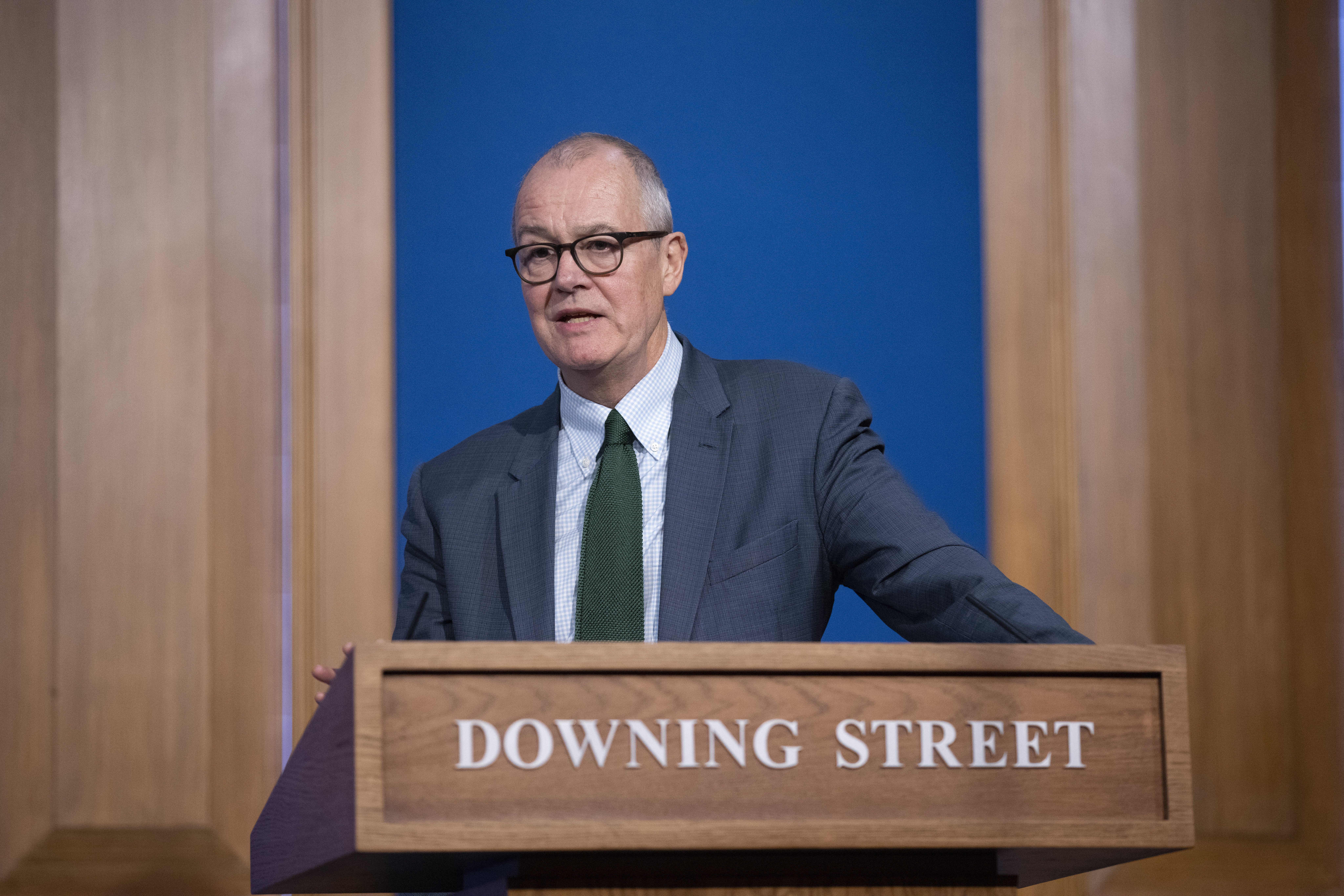Chief scientific adviser: Not Sage’s job to ‘spread gloom or give optimism’
Sir Patrick Vallance says Covid modellers do not only look at worst outcomes.

Your support helps us to tell the story
From reproductive rights to climate change to Big Tech, The Independent is on the ground when the story is developing. Whether it's investigating the financials of Elon Musk's pro-Trump PAC or producing our latest documentary, 'The A Word', which shines a light on the American women fighting for reproductive rights, we know how important it is to parse out the facts from the messaging.
At such a critical moment in US history, we need reporters on the ground. Your donation allows us to keep sending journalists to speak to both sides of the story.
The Independent is trusted by Americans across the entire political spectrum. And unlike many other quality news outlets, we choose not to lock Americans out of our reporting and analysis with paywalls. We believe quality journalism should be available to everyone, paid for by those who can afford it.
Your support makes all the difference.The Government’s chief scientific adviser has defended the “the unenviable task” of epidemiological modellers during the Omicron outbreak as he said it was not their job to “spread gloom”.
Sir Patrick Vallance said it was not the responsibility of the Scientific Advisory Group for Emergencies (Sage) “to take a particular policy stance or to either spread gloom or give Panglossian optimism”.
The comments appeared to respond to criticism – including from some Conservative MPs – of Sage’s Omicron modelling as fear-provoking, with Sir Patrick warning those participating in the debate “need to consider all the data in the round, not only those parts that fit an argument while ignoring the rest”.
“That is not science, even though it might sometimes make an entertaining read,” he continued in a piece written for The Times.
Sir Patrick wrote science was “self-correcting” and “advances by overturning previous dogma and challenging accepted truths”.
“Encouraging a range of opinions, views and interpretation of data is all part of the process. No scientist would ever claim, in this fast-changing and unpredictable pandemic, to have a monopoly of wisdom on what happens next,” he added.
A widely reported statement from the SPI-M-O, a group of scientists who report to Sage, on December 18 warned hospitalisations could peak between 3,000 and 10,000 a day and deaths at between 600 and 6,000 a day based on models assuming no new restrictions were introduced.
They do not, contrary to what you might have heard, only model the worst outcomes
Sir Patrick said modellers were “trying to model lots of different scenarios of how the wave of Omicron might grow, determine which factors are likely to have the biggest impact on spread and its consequences, and to assess how different interventions might alter the outcomes.
“They do not, contrary to what you might have heard, only model the worst outcomes.”
In a separate interview on BBC Radio 4’s Today programme on Christmas Eve, Dr Jenny Harries, the chief executive of the UK’s Health Security Agency and another key face of the government’s response to the Covid pandemic, was also pressed on criticism from some quarters of being “too gloomy”.
“Those who know me know I’m a naturally optimistic individual — I usually hang on to the positives,” she replied. “But what we’ve seen with Omicron is something really quite unusual.”
She pointed out that just a month ago, on 24 November, Omicron was designated a variant under investigation, adding: “What we’ve seen in that time is this particular variant take over effectively.”
The comments from Sir Patrick follow an interview the scientist did with Radio 4 in October in which he said his job was “not to sugarcoat” reality.
He said at the time: “My mantra for a long time during this (pandemic) has been… ‘You’ve got to go sooner than you want to in terms of taking interventions. You’ve got to go harder than you want to, and you’ve got to go more geographically broad than you want to.”